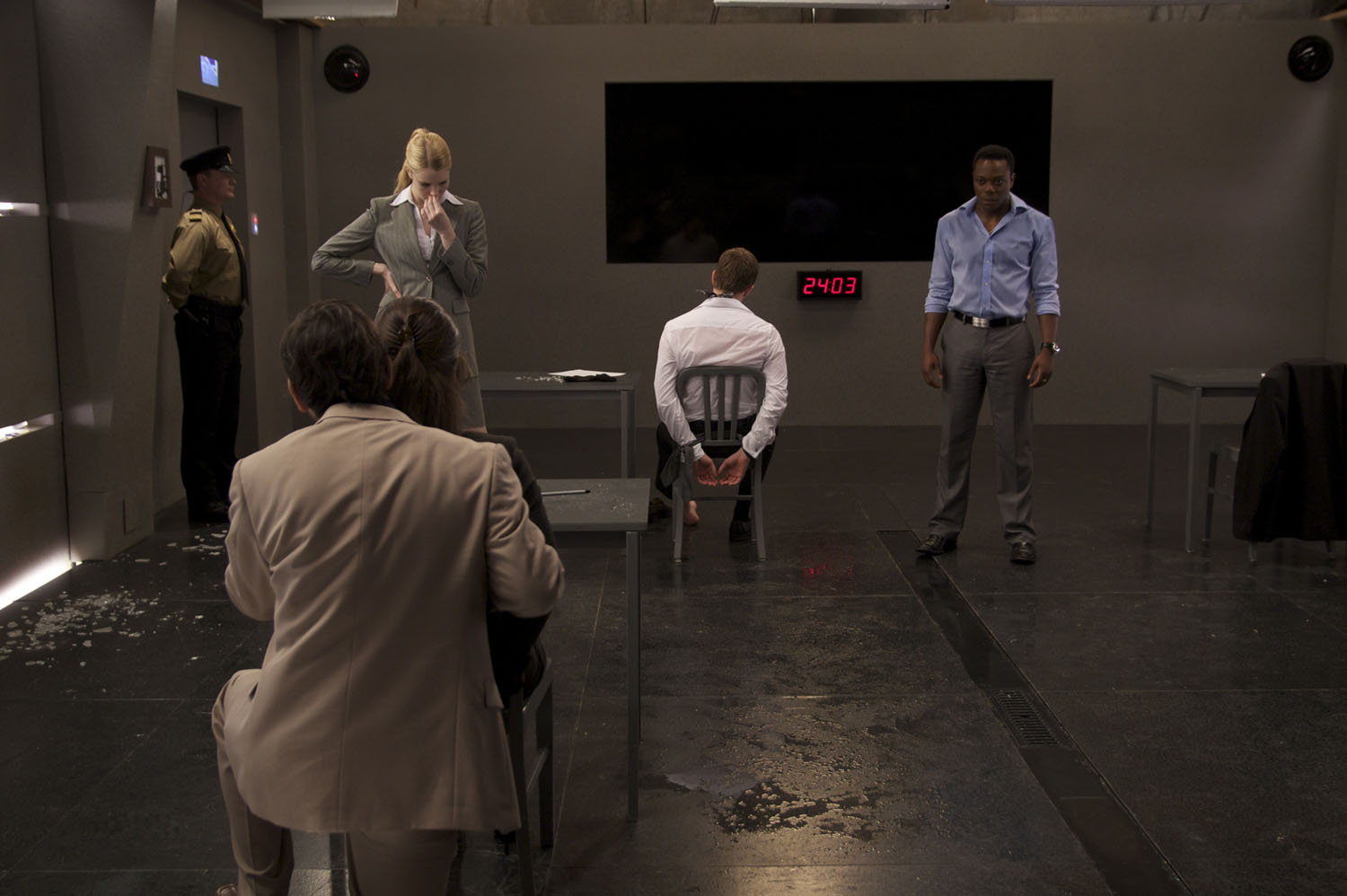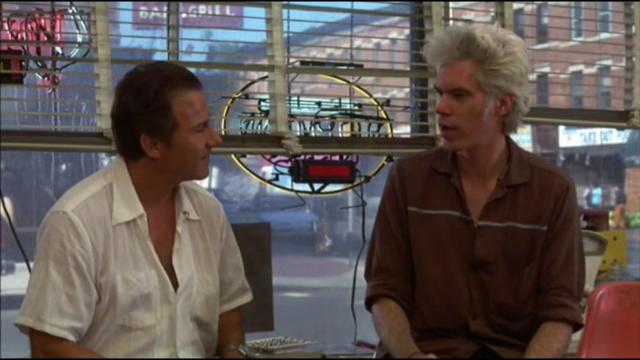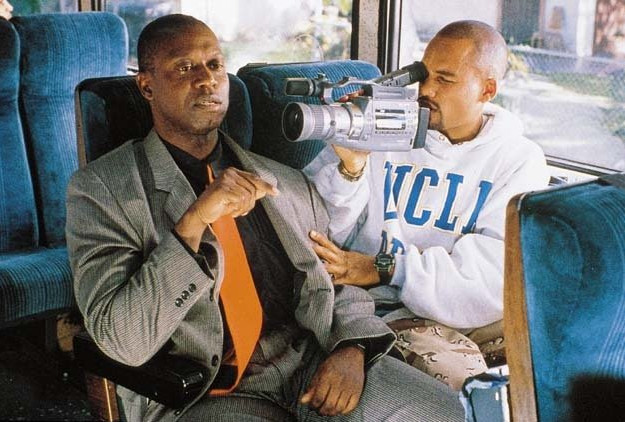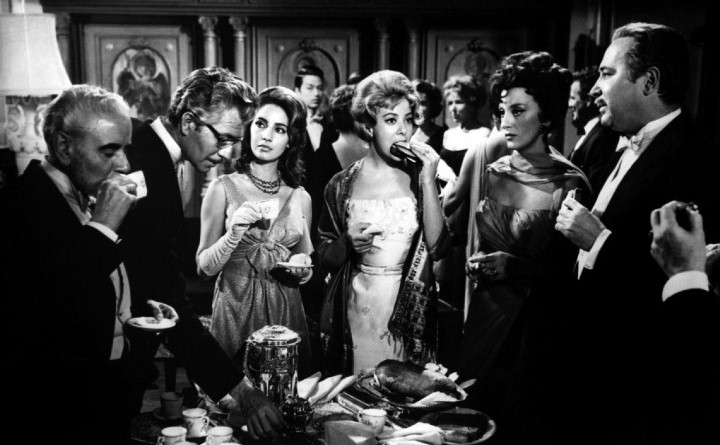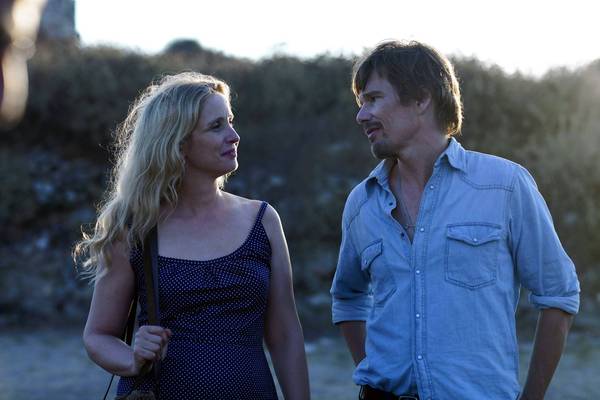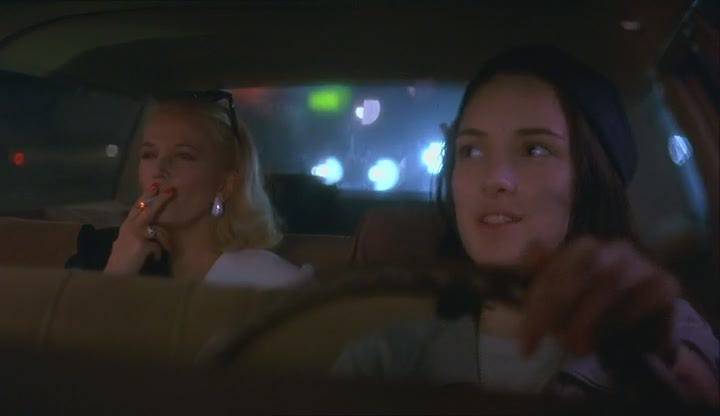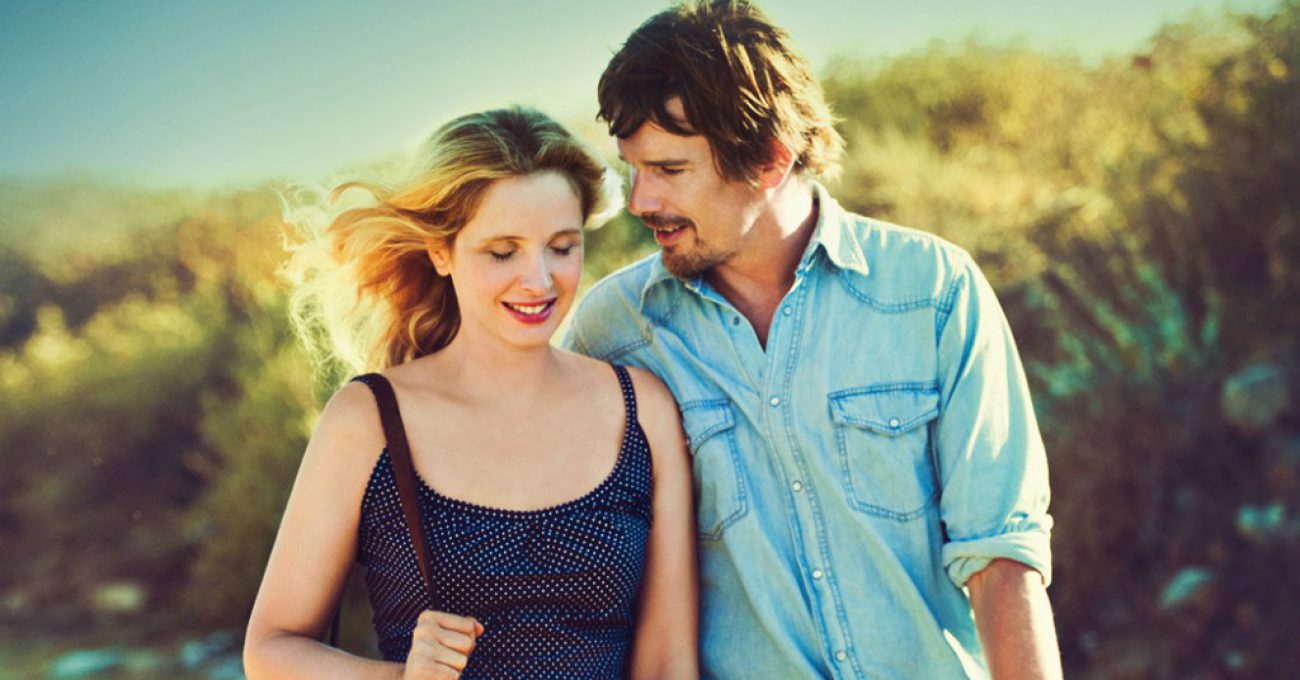
The term “talkies” was given to some of the first movies to feature synchronised sound after the silent era of film. Here however, it would refer to a body of films that consist of people merely talking to one another – no action (that’s why Tarantino movies are not on this list), no explosions, just dialogue. Outside events often take place within the audience’s mind, without the films ever requiring to excessively resort to flashbacks (or forwards) to fill in the narrative’s blanks.
It may be a subject of debate – do not all feature films contain a certain degree of dialogue? Yes. Well, most of them, and these films are NOTHING but – and even though there are plenty of other films that befit this description, this list aims to simply showcase a variety, not all. Whether they are based on plays, set in one location/room or simply feature clashing personalities that make great listening.
Note: This list is discounting documentaries, just dramatic feature films here.
15. Exam (2009)
The Talkie: A fairly recent British entry to start the list off and a film that went over a fair few people’s heads on release too. Eight job applicants enter a room in which they will remain in for eighty minutes in order to talk over, work out or prove, why they should get the job; arguments and torture duly commences. Though it gives the merely-dialogue-in-a-room set-up a refreshing sci-fi twist, it is a shame Exam does not conclude in a manner that surpasses the ingenious group interview from hell premise.
Best Line: Invigilator – “Any questions?”
14. Blue In The Face (1995)
The Talkie: Something of an afterthought rather than a sequel to Wayne Wang and Paul Auster’s own vastly superior film, Smoke, which was also released in 1995. Blue In The Face basically materialised when enough of the previous film’s cast and crews hung around the tobacco shop for a week after the original production, and then shot semi-improvisational conversations and skits featuring a variety of cameos – from Michael J. Fox to Madonna.
Though not as satisfying or as sincere as Smoke, Blue is not trying to be – yet, it certainly is entertaining and requires next-to-no concentration from the audience. Jim Jarmusch’s digression with Harvey Keitel concerning his very last cigarette is this odd little movie’s greatest sequence; the late Lou Reed rambling on about his Brooklyn hometown is also great.
Best Line: Man With The Strange Glasses (Lou Reed) – “I don’t know anyone in New York who doesn’t say ‘I’m leaving’. I’ve been thinking of leaving New York for… uh… thirty-five years now.”
13. Buried (2010)
The Talkie: An evidently claustrophobic ninety minute thriller that deals purely with James Conroy (Ryan Reynolds), a man who has been kidnapped and literally buried alive in Iraq – left with a few items, namely a mobile phone, a pen and a zippo at his disposal. It is a risky premise to say the least and one that could have easily faltered during the final third or by not successfully simulating the oppressive confinements which it impressively manages to do so without ever cutting from the cramped subterranean position.
Buried’s inflexible grip is intensified by Conroy’s torturously futile phone calls (which the film is basically a series of) as he attempts to tackle office-bound bureaucrats, reach loved ones and save his own life whilst the battery bars are periodically vanishing, as is his hope – all from the limitations of a 7 x 2 foot coffin.
Best Line: Kidnapper [on phone] – “American can breathe? No breathe?”
12. Get On The Bus (1996)
The Talkie: Spike Lee is not always a director who opts for subtlety when dealing with connotations and subtext concerning race relations, but with a great script, he can sure keep you listening regardless of your socio-political standpoint, as Get On The Bus demonstrates greatly.
Released exactly a year after the actual Million Man March – the narrative concerns a group of black men who ‘get on the bus’ to embark on a weeklong journey from L.A. to D.C. in order to participate in the march. Among the passengers is a mixed-race off-duty cop, a violent thug turned Muslim, two homosexuals, a racist, sexist and homophobic actor, an amiable old guy and a white driver.
Just so to repeat, the dealings are about as subtle as a brick through a window but the stark personality clashes do produce some innocently intriguing chit-chat, vehement arguing, a mobile-bus-ejection, and ultimately some enlightenment for both the characters and audience.
Best Line: Flip – “Tell me I didn’t hear what I think I just did.”
Xavier – “What?”
Flip – “He just said “You’re not man enough to admit you don’t love me”, to him!”
11. The Exterminating Angel (1962)
The Talkie: Without a doubt the most avant-garde entry on the list, this classic Mexican feature is quite possibly one of the strangest films ever made – then again it was written and directed by the same mind behind Un Chien Andalou.
At the end of a dinner part in a grand mansion, the upper-class guests get ready to leave – only, they then settle back down, go to sleep and wake up discovering that they are illogically trapped in the room despite there being no visible barriers. The Exterminating Angel presents a nightmarish scenario that results in irrational blame-throwing contests for the guest’s absurd situation and them scrapping pathetically on the floor among more comically freakish events.
Buñuel is clearly having fun satirizing at the upper classes – using blatant surrealism to mock the guest’s seemingly fatalistic despondency all the way through. Still, the shockingly ambiguous ending will render you totally flabbergasted.
Best Line: Rita – “I believe the common people, the lower class people, are less sensitive to pain. Haven’t you ever seen a wounded bull? Not a trace of pain.”
10. Before Midnight (2013)
The Talkie: At least one chapter of the now revered Before trilogy had to be mentioned on this list – it would almost be criminal not to include it considering its following. Before Midnight it is.
Just as Sunset followed Sunrise, Midnight arrives after another nine years since the previous film, picking up with Céline and Jesse on a holiday in Greece. This film is a much more grounded and ‘realistic’ affair for the couple – the treatment of love and family life is dealt with dead-seriousness this time round; the previous instalments seemed to be catching the lovers together between two points in their life which enabled their alluring conversations and fated meetings to verge on the fantastical.
The very essence of Before Midnight is epitomized during the lengthy argument between the two characters; it is both shatteringly matter-of-fact and emotionally draining and also takes up almost the entire second half of the film in an otherwise cosy hotel room.
Best Line: Céline [looking at sunset] – “Still there. Still there. Still there. Gone.”
9. Night On Earth (1991)
The Talkie: In Night On Earth, Jim Jarmusch returns to the unconventional parallel narrative approach, but in a more accomplished and refined manner after 1989’s Mystery Train.
The film involves five separate and seemingly unconnected stories that focus on the spatially close but brief relationship between taxi drivers and there passengers. It sees the director retain his deadpan style of comedy and subtly picks up on other issues such as discrimination, blindness, naivety, ambition, class, sin, loss and death through the various conversations between the people in the taxis.
Night On Earth’s journey from L.A. to Helsinki via New York, Paris and Rome showcases the different effects of such issues each time around in different locations. Robert Benigni literally talking a priest to death during an in-cab confession of deranged debauchery is hilarious whereas Winona Ryder’s untouched aspirations of becoming a mechanic despite being offered a role in a Hollywood movie is rather touching.
Night On Earth is possibly the best example of the Jarmusch’s grasp of highlighting the supposedly insignificant moments of people’s lives and how they can define the person as much as the big moments; it’s not just getting to somewhere what is important, it’s how we get there.
Best Line: Paris Driver – “Don’t blind people usually wear dark glasses?”
Blind Woman – “Do they? I’ve never seen a blind person.”
